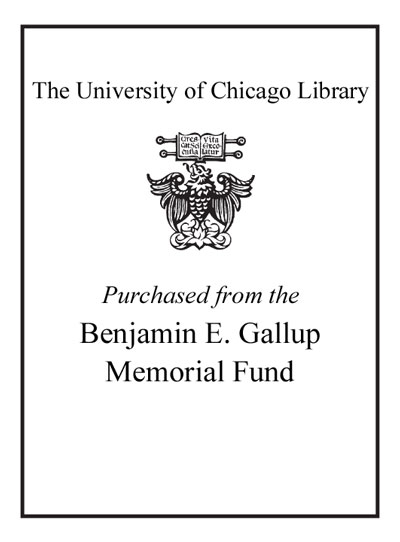Review by Booklist Review
The success of Cody's Wild West extravaganzas must have been partly due to his genuine background as a frontiersman. Carter's biography exhibits the same judgment of Cody's contemporary interest, for it's much devoted to Cody's years on the plains--or rather, to stripping from the stories the embellishments, embroidering, and plain made-up stuff told after Cody became famous. Growing up in the territory of Kansas, young William at age 11 supposedly (according to his autobiographies) killed his first Indian. If this is not strictly true, there later were verifiable fracases in which Native American braves lost their lives, and Cody could have his. The buckskin, broncos, and bullets in Cody's frontier experiences pull the reader along, as he rides the Pony Express, fights in the Civil War, and afterward serves as a scout to the army, and then to well-heeled hunters blasting the buffalo to near extinction. By the early 1870s, a Boswell had shown up, induced Cody to try his hand at acting, and the rest is show-biz history. A stolid sifting of facts from fiction. --Gilbert Taylor
From Booklist, Copyright (c) American Library Association. Used with permission.
Review by Publisher's Weekly Review
Historical judgments of Buffalo Bill have varied wildly over the years, in large measure according to the political winds of the time. In the 1950s, he was portrayed onscreen by Charlton Heston as a founding hero of the Old West; as depicted in a 1976 Robert Altman film, he's a "hopeless drunk" and a "flamboyant fake." Contemporaries called him "the most renowned of men"; recent historians have likened his actions to those of the Ku Klux Klan. Carter's project in this sharply written biography is to set aside myth and agenda and simply to describe the life, which was wild enough in fact to eliminate the need for fiction. As a teenager, William Cody herded cattle and rode vast distances for the Pony Express. As an adult, he scouted for the Union during the Civil War, fought in the Indian Wars, and killed buffalo by the thousands. But even with all this, Carter posits, what really secured Buffalo Bill's fame was his turn to showmanship and his invention of the world-famous traveling Wild West show. Part theater, part exhibition, part circus, the Wild West show was Buffalo Bill's "infotainment" version of the taming of the frontier and of his own (somewhat exaggerated) role in history. It was seen by an estimated 50 million people, including Queen Victoria, and turned Buffalo Bill into "America's first media hero." Carter is a novelist by trade, but his work as historian in this comprehensive biography is astute and well balanced; he succeeds in his larger goal of teasing apart the life from the legend. There's a large audience for American, and in particular western, history, and those readers will not want to miss this genial account. (Oct.) (c) Copyright PWxyz, LLC. All rights reserved
(c) Copyright PWxyz, LLC. All rights reserved
Review by Library Journal Review
These two budget hardcovers from Castle go behind the myths of American history. Carter traces Cody from his alleged life-and-death adventures as a Pony Express rider, Indian fighter, and Civil War cavalry scout to his metamorphosis into a fabricated carney showman that made him famous. Commager and Morris put forth a chronological eyewitness account of the American Revolution through letters, journals, diaries, diplomatic correspondence, and numerous other resources. (c) Copyright 2010. Library Journals LLC, a wholly owned subsidiary of Media Source, Inc. No redistribution permitted.
(c) Copyright Library Journals LLC, a wholly owned subsidiary of Media Source, Inc. No redistribution permitted.
Review by Kirkus Book Review
A comprehensive, sharply rendered life of showman William Buffalo Bill Cody that pries frontier realities away from legend. Carter (Final Edit, 1994, etc.) examines Codys life against a background of western expansionism, showing how such figures as Wild Bill Hickock, Kit Carson, and General Custer influenced the young Codys sense of himself and the American West. By turns a farmboy, stagecoach driver, Pony Express rider, and pro-Union vigilante in Bleeding Kansas, Cody first distinguished himself as an Army scout on the Great Plains, fighting in at least 14 Indian War engagements and thereby earning the favor of a then-obscure army officer named William Tecumseh Sherman. He later guided eastern tourists on a grotesque series of hunts that decimated the population to near-extinction by 1880. A chance encounter between Cody and dime novelist Ned Buntline led their collaboration on a series of crude, semi-improvised pulp stories that began the tradition of much of the blood and thunder melodrama associated with the modern Western. These evolved into Codys signature Wild West Showan elaborate traveling exhibition that ran for years, establishing a familiar, sentimental, and glorified representation of the West. While maintaining a sharp focus on Cody, Carter frankly addresses prickly issues of the historical milieu, taking due note of the brutality visited by Shermans army upon the Indians and the profligacy embodied by the buffalo hunts. Many incidents lend a humorous tone, however, in depicting both the ribald innocence of frontier mores and the omnipresent violence, which men like Hickock and Cody regarded lightly. A splendid portrait of Codys life and times, at once poignant, boisterous, and disturbing.
Copyright (c) Kirkus Reviews, used with permission.
Review by Booklist Review
Review by Publisher's Weekly Review
Review by Library Journal Review
Review by Kirkus Book Review

